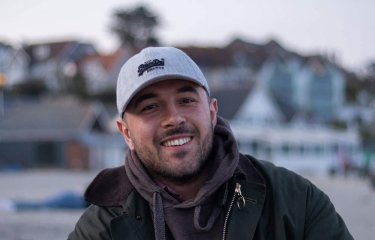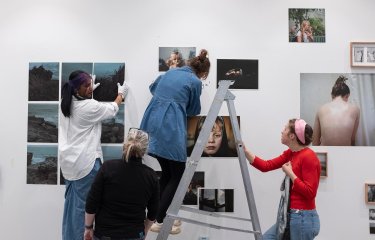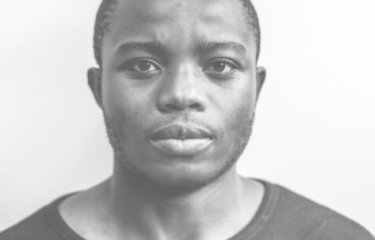Coming soon: The Frequency – a novel by Falmouth Film graduate Terry Kitto
23 June 2021

Independent novelist might not be the first career path you’d think of for a Film graduate. But that’s the story of Terry Kitto, who graduated from Falmouth University in 2016. His self-published novel The Frequency is set to be released on 30 July 2021.
Set in Cornwall, the paranormal thriller tells the story of Syrian refugee Rasha, who becomes entangled in a series of possessions that sprout up across the county.
Saved by a covert occult group, Rasha learns she is an unwilling pawn in a ghostly uprising – one that will destroy the balance between life and death. No choice will be easy for Rasha when thwarting a monster means becoming one herself.
If you want to know what becomes of Rasha, check out the teaser and pre-order the book on Amazon.
We recently caught up with Terry to hear about his experience at Falmouth, how he went from film grad to novelist, his writing process and what advice he’d give to aspiring writers. Here's what he had to say...
How did your studies at Falmouth help develop your writing skills?
I graduated from Film, having specialised in screenwriting. The craft taught me all the story mechanics needed to write in most mediums, particularly because of the focus on character and plot. The Film BA(Hons) course also taught us a lot about editing, film production, and creating media kits, which has all translated into marketing and promoting my book.
I believe that the course itself isn’t as important as the skills and experiences that you take from it.
What influences inform the stories you tell and how you tell them?
At the core of my writing are existential themes; it’s where I find the voice for that particular project. For example, The Frequency at first glance is a high concept paranormal thriller, but that’s the tip of the iceberg. The bulk of the project explores grief experienced by those who have concrete evidence of an afterlife.
It’s that thematic conflict that pushes my characters’ motivations from there on out. How do they experience grief? Do they long for people just out of reach, or are they numbed to the concept of death when existence is eternal? Now that physical life is just the first of many chapters – ergo, dispensable – are they reckless in the decisions they make?
No matter what I’m writing, I’m never far from social topics close to my heart, including LGBTQ+ issues, the refugee crisis, Black Lives Matter, and the austerity that many impoverished areas are facing. All of those things subconsciously bleed into the themes and representations in my work. It’s often why I tend to write character ensembles with alternating perspectives.
Create your own opportunities — the only limitations are the ones we place on ourselves.
Can you give us an insight into your writing process?
My writing always starts with a concept. The Frequency was sparked by a question I asked myself when watching a horror film: how do people grieve if they have concrete evidence of an afterlife? All my potential answers sprouted different points of view, which developed into voices and reasoning – and then became characters all of their own. The world-building and moral conflicts stem organically during that process. From there I plan (loosely, because I am a pantser [a writer who likes to fly by the seat of their pants] at heart) the plot and characters arcs, letting the protagonists and antagonists ultimately drive the story.
Once I feel like I have enough to write, drafting is a military operation. I was working a full-time job at the time, so I gave myself the goal of 1500 words a day, six days a week, and so my first draft (which came to 120K) was completed in about three months. As an indie author, I still want the quality of my work to be on the level of a traditionally published book and so I undertook about seven revisions, the last of which included a round of beta readers and critique partners. Then it was professionally edited and proofread. All in all, the actual writing of the book took a year and a half from inception to locking down the final draft.
What advice would you give to students looking to have their work published?
As punk as it sounds, we’re living in the age of doing-it-yourself – and so I would tell students to consider self-publishing. If you’re an author, self-publishing novellas and short story collections independently can help you grow an organic audience and put your work into the hands of readers. There’s no reason why you can’t pursue traditional publishing later. If you’re a journalist you could start a blog, zine, podcast, YouTube channel or even live stream reviews and reactions on Instagram or Twitch. There are so many platforms and avenues to take advantage of.
Create your own opportunities – the only limitations are the ones we place on ourselves.
+
Check out Terry's website for more information about the author and his work: www.terrykitto.com




